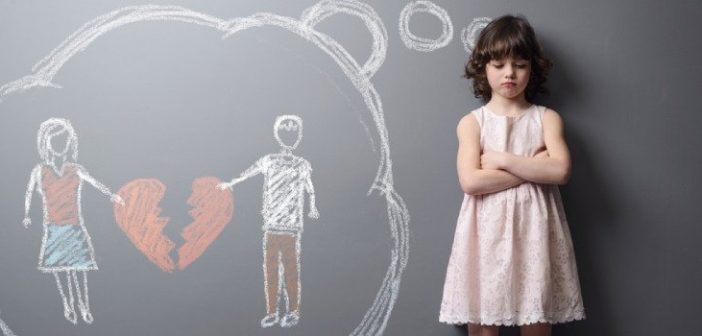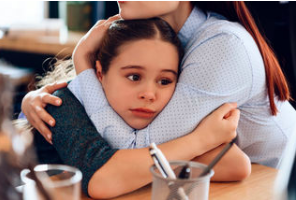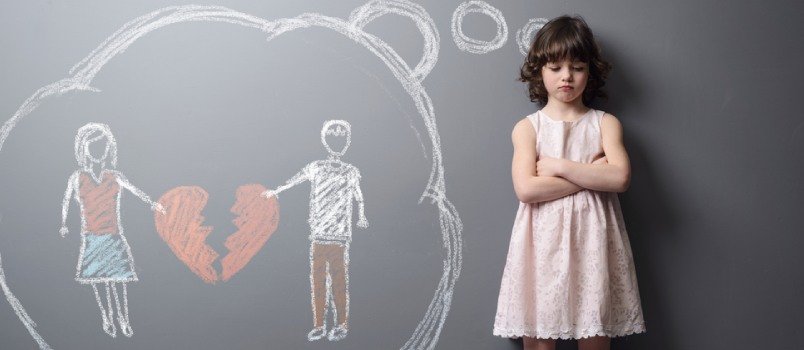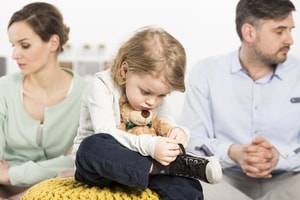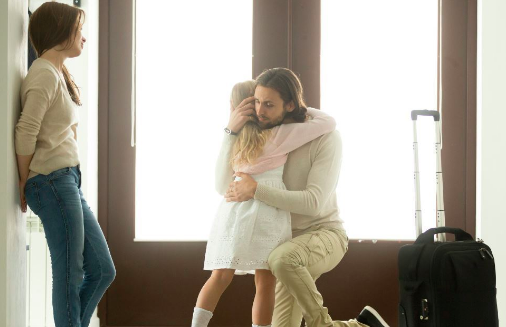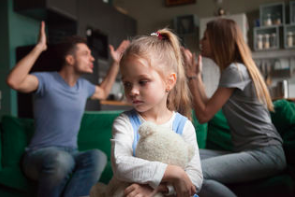
“Divorce is not a child’s fault”, “A successful marriage requires falling in love, always with the same person”, and “Divorce isn’t such a tragedy”.
These are sayings that divorcing adults see and ponder over when their ‘Happily Ever After’ Fairy Tale ending starts falling apart.
We know that most of the time, it is what it is but it doesn’t make things easier, especially when there are children involved. Here are seven staid ways to restore the small change of order in the family.
Impact of Divorce on children
I know how it feels because my parents got divorced when I was young.
Divorce is a very complicated and traumatising experience for a child.
I used to think it was my fault that my parents got divorced. I used to blame myself for not being able to do anything to prevent it. Arguments between my parents induced fear and uncertainty. As a child, I was worried about living arrangements, the financial situation and I questioned a lot of things at the time.
Children turn out best when both parents work together to soften the impact and offer patient guidance to their children along the way. A child of divorced parents experiences phantom fears during a divorce and it’s both parents’ responsibilities to help guide them as much as possible.
If you’re worried about the same thing, there are things you can do – one step, one day at a time – to ease the burden off their shoulders. The following are signs divorced/divorcing parents should look out for in their children.
Loss of Interest in Social Activity
Research suggests that divorce can affect children socially. Children whose family is going through divorce might have a harder time relating to others and completely retreat from social interactions. They feel insecure and may wonder if their family is the only ‘unlucky’ one.
Introduction of Destructive Behavior
When parents go through a divorce, unresolved conflict may lead to future, unexpected risks. Research has shown children who have experienced divorce in the previous 20 years were more likely to:
- Participate in criminal or delinquent activities
- Rebel
- Pick up smoking
- Indulge in recreational d
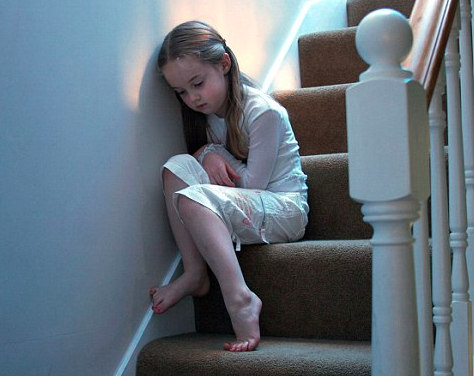
Increased Health Problems
Children of divorce are 50% more likely to develop health problems and children living with both biological parents are 20% to 35% healthier, physically, than children from homes without both biological parents present.
[1] Langton CE, Berger LM. Family structure and adolescent physical health, behavior, and emotional well-being. Soc Serv Rev. 2011;85(3):323–357. doi:10.1086/661922
Loss of Faith in Marriage and Family Union
Children with a painful past may have less faith in their own future marriage(s).
One of every 10 children of divorced parents will also experience three or more subsequent parental marriage breakups of their own.[1]
Despite hoping to have stable relationships themselves when they grow up, research shows children who have experienced their own parents’ divorce are more likely to divorce in the future.
Some research indicates this propensity to divorce may be two to three times as high as children who come from non-divorced families.
Poor Academic Performance
The change of dynamics is disconcerting and disrupts a child’s focus. Studies from the early 1980s demonstrated that children in situations where their parents had been involved in multiple divorces got lower grades compared to their peers. Also worrying? Their peers rated them as less pleasant to be around.[2]
[1]Anderson J. The impact of family structure on the health of children: Effects of divorce. Linacre Q. 2014;81(4):378–387. doi:10.1179/0024363914Z.00000000087
[2]Furstenberg FF, Nord CW, Peterson JL, Zill N. The life course of children of divorce: Marital disruption and parental contact. American Sociological Review. 1983;48(5):656. doi:10.2307/209492
Feelings of Guilt
Not being privy to first-hand information relating to marital conflict, children question and wonder if they inadvertently played a role in the divorce.
They look for answers like:
- Do their parents love each other any more?
- Do their parents love their children less (as a result of the changing family dynamics)
- Reflect on their own actions to see if they had done something to contribute to the crumbling marriage
Regardless of age, gender, and culture, children of divorced parents experience increased psychological problems.[1] Studies have also found that depression and anxiety rates are higher in children from divorced parents.
If left unanswered, the emotional impact can snowball into something bigger which may (or may not) lead to other issues in the future.
Guilt increases pressure and can lead to depression, stress, and other health problems.
As concerned parents who are already undergoing a tremendous amount of stress, we should look for ways to connect with our children more often, provide them with assurance, remind them that it is not their fault, and attend counseling if required. The role of a parent is to reduce the feeling of guilt and trauma.
[1]D’Onofrio B, Emery R. Parental divorce or separation and children’s mental health. World Psychiatry. 2019;18(1):100–101. doi:10.1002/wps.20590
Anger/Irritability
Children who experience the process of divorce may display anger at their parents, themselves, their friends, and others. Teens can get angry at the sudden change in the family dynamic, and resent one or both of the parents.
Parents, unfortunately, may find themselves at the receiving end of the anger and irritability. If parents adopt a softer, calmer, and more neutral, and understanding approach to handling the difficult outbursts, it will enhance the parent-child relationship in the long run.
Having someone who understands how they feel during the roller coaster emotional upheaval will provide a sense of refuge and comradeship.
What should parents do to help their kids?
- Offering Caring Support – With rife undercurrents and emotional turmoil within the family, it is important for both parents to maintain a caring attitude towards each other. Parents should refrain from speaking negatively about each other in front of their kids. Resentment is the last thing we want in the mix of things. The negative energy will put a further unnecessary strain on the parent-child relationship.
- Healthy, Caring Parents – Maintain positive communication, provide parental warmth, and reduce conflict will help children adjust to divorce better.
- Talking it out – Talking about it makes your children feel safe, secure, and that their emotions matter. Whatever goes on either at home or in school/college, they are assured of a refuge. This provides a safety net for their overall mental health.
- Maintaining the peace – Parenthood doesn’t end with divorce. Overt tension, such as screaming and threatening one another has been linked to behavioral problems in children. Conflict between parents increases children’s distress. Parents could have a support system so that there is constant communication directly between parents regarding their kid’s well-being. By co-parenting as peacefully, calmly, and wisely as possible, it reduces the negative impact on their children. If you struggle to co-parent with your ex-spouse, seek professional help.
- One-On-One Attention – Being caught in the middle is like being stuck between a rock and a very hard place. It is so much more difficult to comprehend when you’re a child. So, avoid putting your kids in the middle.Asking kids to choose between one parent or the other or using them as a messenger confuses young children. Go that extra mile to spend time with kids one-on-one and assure them that they are loved by both parents regardless of the changing dynamics. Even if everything around them changes, the love never will
- Empower your child – Empower your child to eradicate self-doubts and beliefs that they are helpless victims. Teach your child that although dealing with divorce is difficult, help them build mental strength to thrive and rise. Parents should also teach specific coping skills. Kids with active coping strategies like problem-solving and cognitive restructuring skills adapt better to divorce. Teach your child how to manage their thoughts, feelings, and behaviors in a healthy way.
- Stabilizing family life with routine – Parents can ease trauma of divorce by establishing routines. Routines ensure the child’s life is stable and calm them so they don’t feel their lives are any different from their peers. For example, dinner is at 7 pm in both households.

